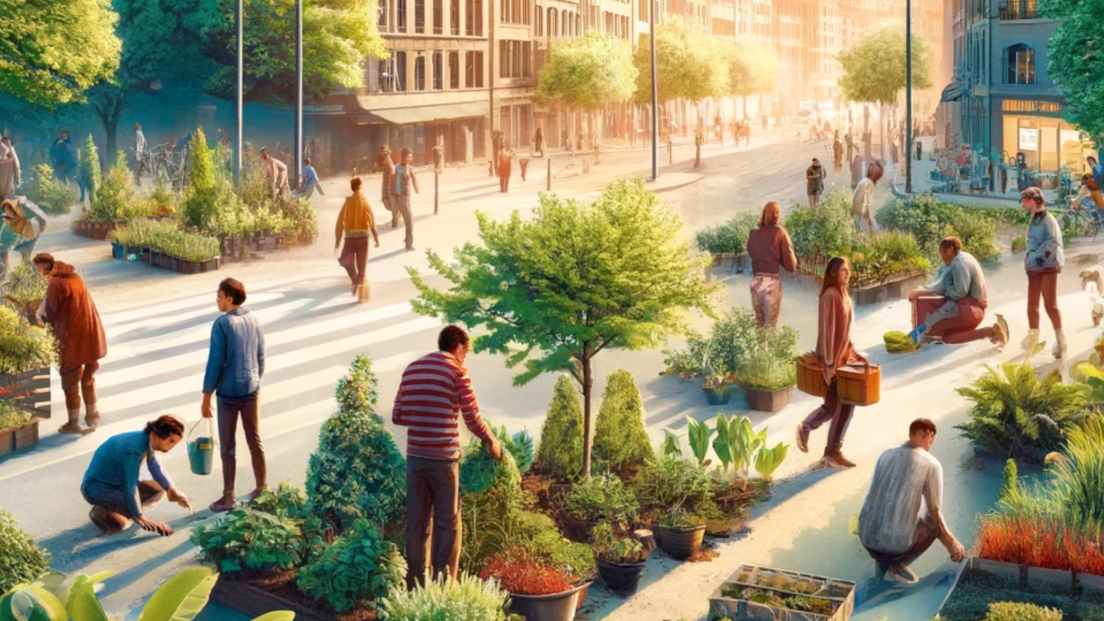University of Bern makes Postgasse even greener

Die Universität Bern startete 2023 das Projekt „Die grünste Gasse der Welt“ mit einer Begrünungsaktion in der Postgasse. Ziel ist es, die biologische Vielfalt zu erhöhen, das Stadtklima zu verbessern und die Lebensqualität der Bewohner zu steigern. Am 25. Mai fand ein zweiter Pflanztag statt, um diese Bemühungen fortzusetzen.
The University of Bern launched the project “The greenest alley in the world” in 2023 with a greening campaign in Postgasse. A second planting day took place on 25 May. “Our aim was and is to increase biodiversity, improve the urban climate locally and enhance the quality of life of residents with the minimum possible structural measures,” said Matthias Erb, initiator of the project and professor at the Institute of Plant Sciences at the University of Bern, in a press release.
The project is supported by the City of Bern and partners from Bern’s business community, which means that the residents of Postgasse can design their neighbourhood largely free of charge. in 2023, eight trees, 23 small shrubs and over 300 seedlings were planted. This year, plants, soil and pots were delivered to Postgasse to continue the greening process. All residents were invited to take part in the gardening work. Boum, a spin-off company from the University of Bern, provided plant pots with an irrigation function.
After planting in 2023, the Institute of Geography at the University of Bern carried out measurements that showed a localised drop in surface temperature. In order to have a noticeable impact on the air temperature, the greening would have to be significantly advanced, according to the press release. “I am confident that with further greening we can counteract the loss of biodiversity and, at least locally, the effects of extreme heat,” Adrian Métry, head of the project, is quoted as saying. A survey showed that 78 per cent of residents perceive the alley to be significantly greener after the first greening campaign, which improves the quality of life. According to the survey, a third of respondents had noticed a positive climate effect. 53 per cent said the project had prompted them to think about issues such as climate change and community. 94 per cent agreed to further greening with communal gardening.